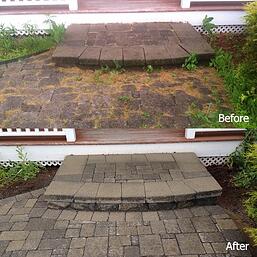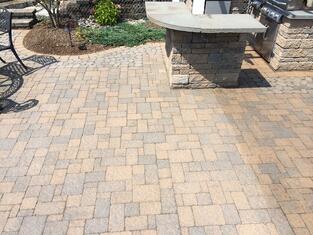This is a question posed to us often. While pavers are a great choice for your hardscape surfaces, there are three main benefits to sealing them. The first is to prevent surface erosion, second is to keep them cleaner, and third is to help stabilize the joint sand. We will discuss each of these reasons in more depth below.

The main benefit to sealing pavers is to prevent the surface erosion that takes place over the years from rain and the elements. All concrete, whether it be pre-cast products like pavers or poured-in-place like sidewalks, will erode over time. Larger aggregates and stones become visible and the paver becomes much more rough than it was when it was smooth and new. Once this happens, it cannot be undone. Sealing your pavers professionally every 3-5 years with a film-forming sealer will prevent this from occuring.

Sealing your pavers also keeps them cleaner. There are two types of sealers; Penetrating and Film-Forming. These prevent surface contaminates from becoming embedded in the concrete pores over time, causing pavers to darken and even grow moss or mildew depending on the conditions. The sealers also allow for easy routine sweeping and rinsing.

The third reason is that sealing your pavers helps to further stabilize the joint sand, adding longevity to your hardscape project. Jointing sand will last longer and will not need replacement nearly as often.
As we have discusssed, paver sealing is a great way to protect your investment for years to come.

Related Articles:
What is Concrete Paver Sealer?
Hardscape Cleaning and Maintenance
What is Joint Sand for Pavers?